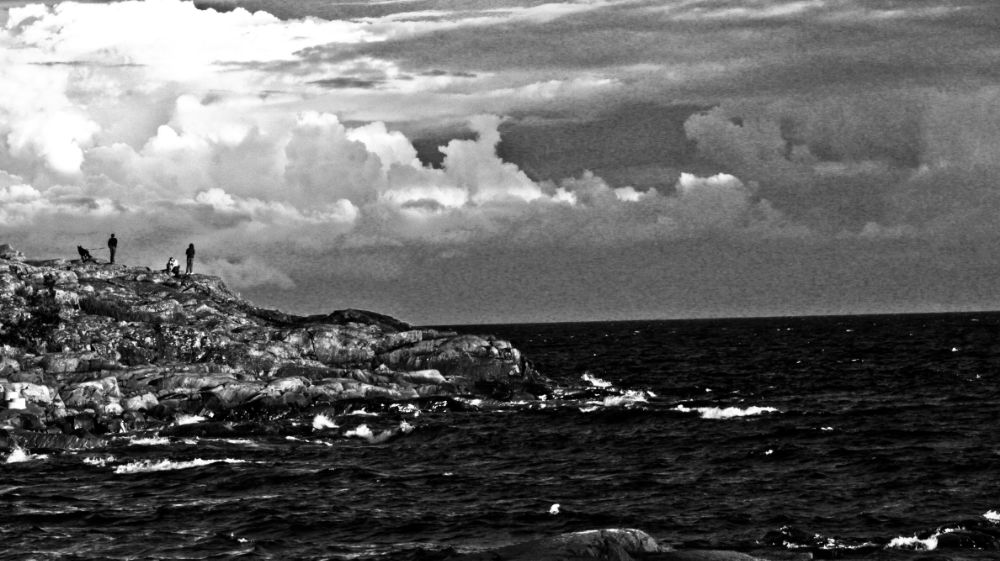Saturday, August 31, 2013
things founded clean on their own shapes
The Peninsula
When you have nothing more to say, just drive
For a day all round the peninsula.
The sky is tall as over a runway,
The land without marks so you will not arrive
But pass through, though always skirting landfall.
At dusk, horizons drink down sea and hill,
The ploughed field swallows the whitewashed gable,
And you’re in the dark again. Now recall
The glazed foreshore and the silhouetted log,
The rock where breakers shredded into rags,
The leggy birds stilted on their own legs,
Islands riding themselves out into the fog,
And drive back home, still with nothing to say
Except that now you will uncode all landscapes
By this: things founded clean on their own shapes,
Water and ground in their extremity.
Seamus Heaney
Door into the Dark
Subscribe to:
Post Comments (Atom)

The last stanza (!) and a way of seeing out of heart land, yet real and physical. This is the balance I want. This is the poetry I want.
ReplyDelete(And I want him. Back. But with these words and symbols, he'll be continually renewed.)
Ruth: i've loved this poem for a long time, for its language and the transformation that works through landscape -- even though we might still have "nothing to say," the silence is changed and deeper, and perhaps pregnant with what we will say in time. i especially wanted to post it because i suspect many readers overlook "The Peninsula," seeing it as a preliminary sketch for the very well known, and wonderful, "Postscript" from twenty years later.
Deletein case you don't know "Postscript" here is a link to Heaney reading it at the RTE archives
http://www.rte.ie/archives/2013/0830/471296-seamus-heaney-postscript/
according to his son michael, seamus heaney's last words were "Noli timere" (latin for "don't be afraid") in a text message to his wife, Marie. i have mixed feelings about whether we should even know this private communication, and i wonder how we can understand it. words can be deeply encoded inside a long marriage, and we will never know the weight this phrase carried between them -- two lapsed catholic kids who grew up in the old liturgy. but i also can't help thinking of it as an illustration of heaney's fundamental decency, his last act to reach out to his wife with some comforting gesture -- and of the presence of the depths of language within even in this extreme moment. (and how far should we go in thinking of this as a "poetic" gesture -- does this dying man's phrase to a woman named Marie recall with irony the just-risen christ's "noli me tangere" to the other Mary? is that crass and too far? or is it a recognition of the deep working of language below intention???) and the sending of latin through text message? does that say something about heaney (and poetry, perhaps) as representing the survival of something ancient into an uneasily modern context?
i don't want to press these two words too hard (though i suppose i already have) ...
i will miss him, too. but yes, we have him ...
This comment has been removed by the author.
ReplyDeletehaving just returned from italy, this poem speaks to me differently as before: i experienced it, in my own vision and soul, i really discovered that last stanza by myself, though i could have never found the words for it. but now they are here, with the clarity and truth and power of revelation that only poetry can have.
ReplyDelete(thank you for the noli-timere-story as well, it touches me so deeply, i am with you in every question and doubt)
and your photograph is astonishing!
Roxana: we become the places we have lived, or they live inside us ... i am reminded of a surprising line in a charles wright poem that took me years to understand (to understand truly, i mean: "All forms of landscape are autobiographical."
ReplyDeletethe "noli timere" story -- it is touching beyond words, and complex like the best poems ...
.